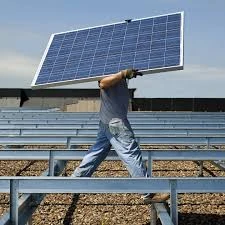Understanding the Role of PV Inverters in Solar Energy Systems
The Importance of PV Inverters in Solar Energy Systems
In the quest for sustainable energy solutions, photovoltaics (PV) have emerged as a favored technology due to their ability to convert sunlight into electricity. However, the critical component that often garners less attention is the PV inverter. This device plays an essential role in solar energy systems, ensuring that the energy produced can be efficiently utilized.
What is a PV Inverter?
A PV inverter is an electrical device that converts the direct current (DC) generated by solar panels into alternating current (AC), which is the form of electricity used by most household appliances and the electrical grid. Without this vital conversion process, the energy captured by solar panels would remain unusable for general applications.
Types of PV Inverters
There are several types of PV inverters, each serving specific needs and applications
. The most common include1. String Inverters These are the most widely used type of inverter in residential and commercial solar installations. A string inverter connects a series of solar panels (a string), converting the collective DC output into AC. While they are cost-effective and straightforward to install, their performance can be affected if one panel in the string is shaded or malfunctioning.
2. Microinverters Unlike string inverters, microinverters are installed on each solar panel individually. This configuration allows each panel to operate at its maximum potential, independently of the others. Microinverters are particularly beneficial in installations where shading or differing panel orientations are an issue, as they enhance overall system performance.
3. Power Optimizers These devices work alongside string inverters, optimizing the performance of each solar panel without converting DC to AC at the panel level. They maximize energy production by adjusting the voltage of the output from each panel. Power optimizers can help mitigate shading issues and improve system reliability.
pv inverter

4. Central Inverters Typically used in utility-scale solar farms, central inverters manage large arrays of solar panels. They are robust and capable of handling significant amounts of electricity but require more extensive balance-of-system components to function effectively.
The Role of PV Inverters in Energy Efficiency
The efficiency of a solar energy system can be significantly influenced by the choice of inverter. Modern inverters come equipped with advanced technologies that enhance energy conversion rates, often exceeding 95%. This efficiency is crucial, as it directly impacts the amount of usable electricity produced from solar panels.
In addition to efficiency, PV inverters often include monitoring systems that allow users to track energy production and system performance in real time. This capability enables homeowners and businesses to identify issues early, ensuring that the solar system operates at optimum levels. Monitoring can also provide data that helps in making informed decisions about energy consumption patterns.
Integration with Smart Grids
As the world moves towards smarter and more flexible energy systems, PV inverters play a pivotal role in integrating solar energy into the grid. They facilitate the bidirectional flow of electricity, allowing excess energy generated by solar systems to be fed back into the grid. This interaction is essential for creating a decentralized energy ecosystem, where localized power generation can lessen the burden on traditional energy sources.
Moreover, certain modern inverters can support energy storage solutions, such as batteries. This integration allows users to store surplus energy produced during the day for use at night or during peak demand periods, further enhancing the efficiency of their solar installations.
Conclusion
In summary, while solar panels receive the lion's share of attention in discussions about renewable energy, the importance of PV inverters cannot be understated. They are essential for converting solar energy into usable electricity, maximizing efficiency, and facilitating the modern energy landscape. As technology continues to advance, inverters will play an increasingly critical role in promoting sustainable energy solutions, paving the way for a greener, more energy-efficient future. Investing in high-quality PV inverters is not just a technical decision; it is a step towards a more sustainable world.
-
Navigating Off Grid Solar Inverter: From Use Cases to Trusted PartnersNewsAug.05,2025
-
Solar Edge String Inverter: A Wholesaler’s Guide to Inverter Technology SelectionNewsAug.05,2025
-
Microinverters: Revolutionizing Solar Energy UseNewsAug.05,2025
-
Future of Monocrystalline Solar Panel Efficiency: Latest Technological AdvancesNewsAug.05,2025
-
Solar Panels for House: A Complete Guide to Residential Solar EnergyNewsAug.05,2025
-
Panel Bifacial Performance in Snow and Low-Light ConditionsNewsAug.05,2025







